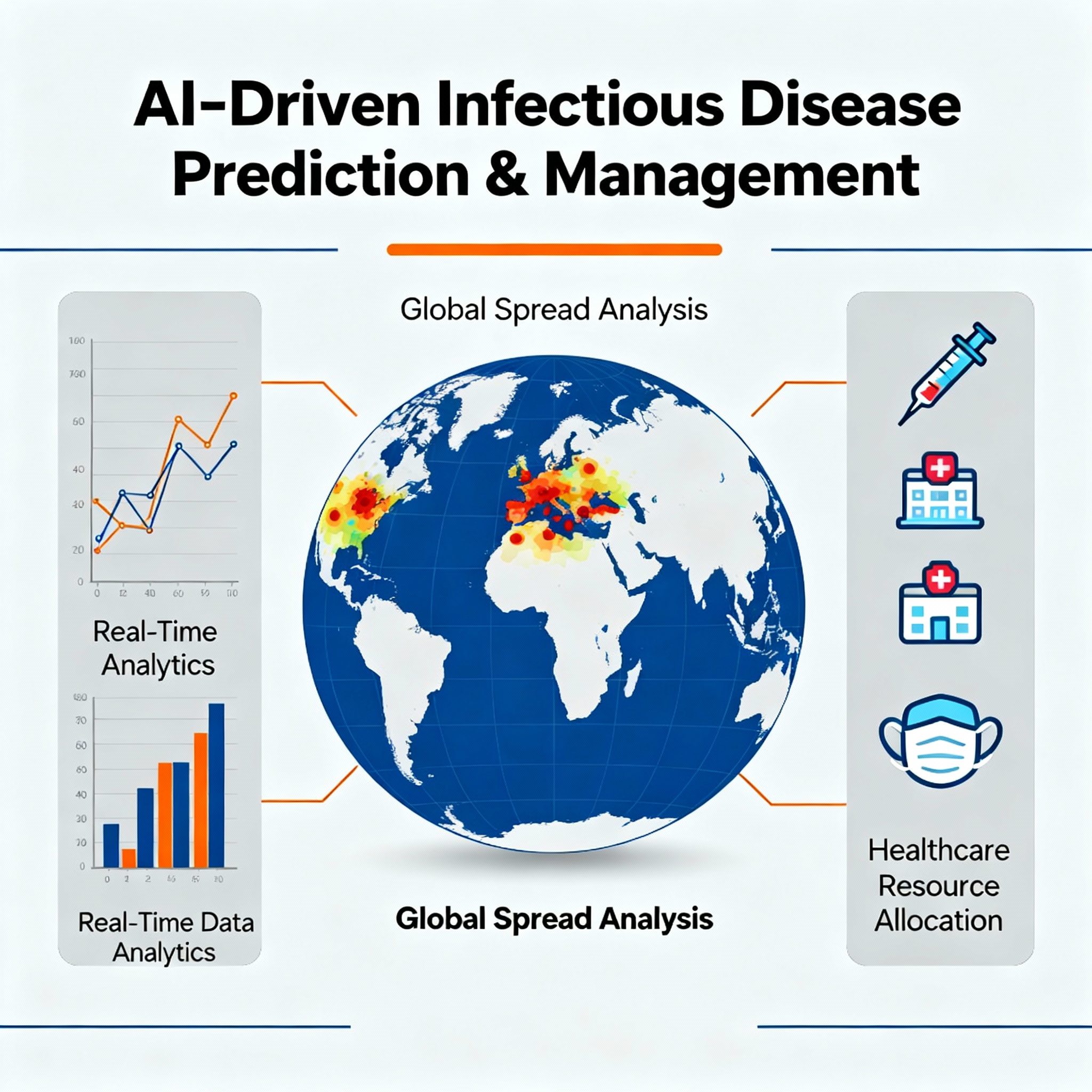Role of Artificial Intelligence in Predicting and Managing Infectious Diseases
DOI:
https://doi.org/10.64062/JPGMB.Vol1.Issue5.11Keywords:
Artificial Intelligence, Infectious Diseases, Livestock, Wildlife, Disease Prediction, Disease Management, Veterinary Epidemiology, Machine Learning, Deep Learning, Biosecurity, IoTAbstract
Infectious diseases in animals present considerable threats to livestock productivity, wildlife health, and global ecological equilibrium, with outbreaks of diseases such as avian influenza, foot-and-mouth disease, African swine fever, and bovine tuberculosis resulting in significant economic losses and potential zoonotic hazards. Conventional surveillance and management techniques often encounter constraints in velocity, scalability, and precision, underscoring the need for creative alternatives. Artificial Intelligence (AI) has become a pivotal instrument for forecasting, observing, and controlling animal infectious illnesses via the analysis of intricate datasets, including animal movement patterns, environmental factors, pathogen genetics, and agricultural management records. Machine learning, deep learning, and data-driven simulations enable the early detection of outbreaks, risk assessment, hotspot identification, optimization of vaccination regimens, biosecurity monitoring, and the modeling of containment tactics. The integration of IoT devices, drones, and remote sensing allows continuous real-time monitoring of extensive livestock and animal populations. AI-driven methodologies exhibit superior prediction accuracy, swift responsiveness, and optimized resource allocation relative to conventional techniques, despite ongoing hurdles like data quality, processing requirements, and practical application. The use of AI in veterinary epidemiology signifies a transition from reactive to proactive disease management, enhancing worldwide readiness, diminishing economic losses, alleviating zoonotic hazards, and fostering sustainable animal health and ecological preservation.




